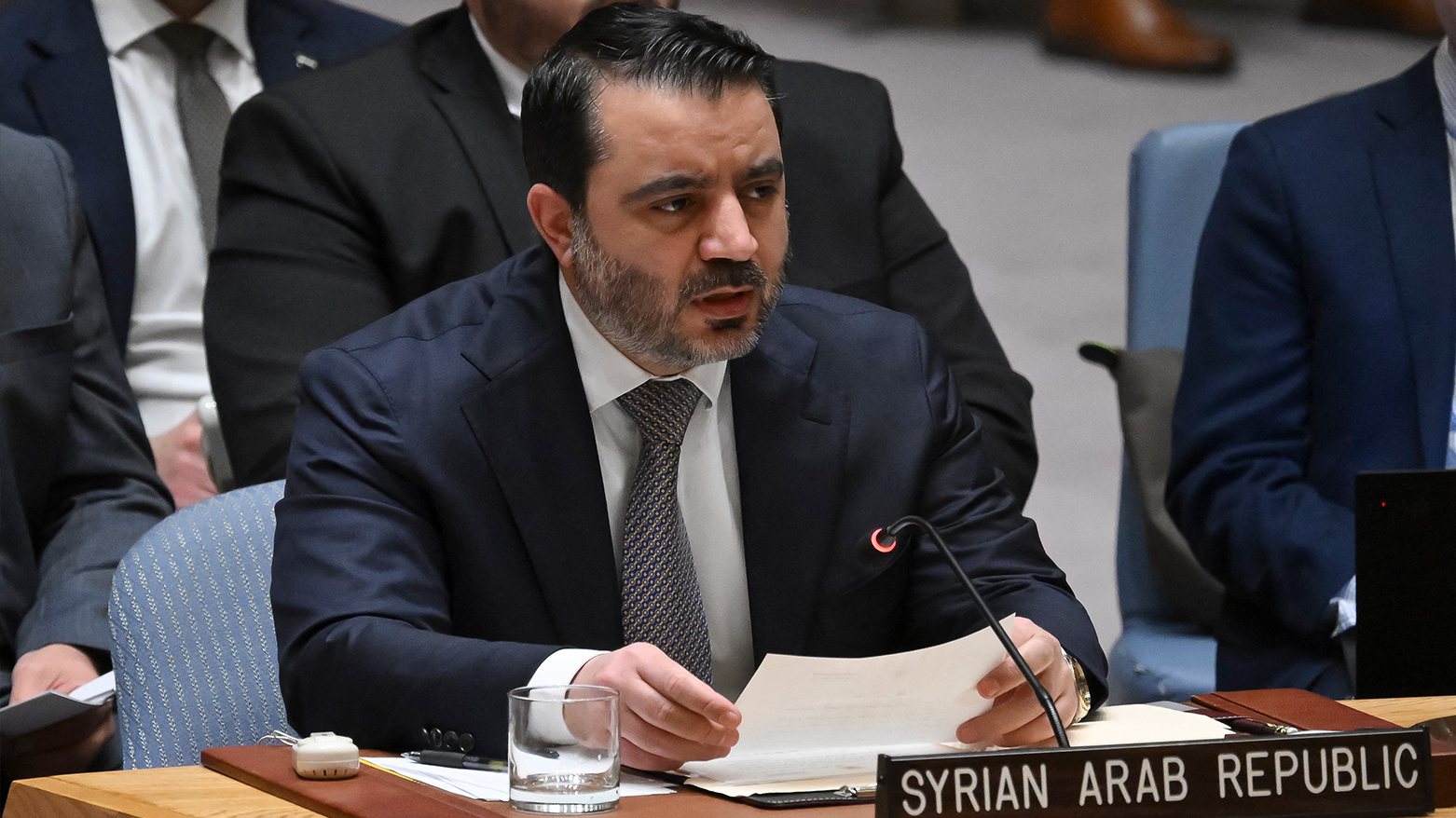Syrian FM at UN: Kurds, Like All Syrians, Reject Foreign Interference and Seek Unity
Al-Shibani warned that such Israeli attacks, no longer justifiable under the guise of targeting foreign militias, now it helps to rekindle Iranian’s arms and reopening battlefronts Syrians fought for 14 years to silence.

By Ahora Qadi
ERBIL (Kurdistan 24) – In an address before the United Nations Security Council on Tuesday, Syria’s Transitional Foreign Minister Asaad al-Shibani underscored the collective stance of Kurds, Christians, Alawites, Druze, and Arabs in opposing foreign domination and divisive rhetoric. His speech offered a rare and unequivocal affirmation of Kurdish inclusion in Syria’s national fabric and emphasized that unity—not fragmentation—must guide the country’s path forward.
Kurds as Partners in Sovereignty
“Syrian Kurds, alongside all our communities, firmly reject external interference and refuse to be instrumentalized in narratives aimed at partitioning Syria,” al-Shibani stated, in remarks that marked the most comprehensive official recognition of Kurdish political agency since the fall of the Assad regime in December 2024.
Referring to recent attempts to portray the Kurdish population as a wedge in regional politics, al-Shibani warned against using Syria’s ethnic diversity to justify geopolitical ambitions. “Even the Syrian Jews we’ve consulted have rejected these divisive plots,” he said.
Al-Shibani acknowledged the role of Kurds and other minorities in shaping Syria’s destiny, stating, “Those who acknowledge diversity and integrate it into governance are the ones building peace—not those who exploit it to entrench sectarianism.”
From Ruin to Reconstruction
In his 10-minute speech, al-Shibani painted a vivid picture of a nation rising from the rubble. “On Dec. 8, 2024, the Syrian people broke free from five decades of tyranny,” he said, referring to the fall of Bashar al-Assad. He detailed efforts to unify military factions, establish a transitional justice commission, and cooperate with international bodies including the OPCW to dismantle chemical weapons stockpiles.
“Syria is no longer an island. Our security is bound to that of our neighbors,” al-Shibani said, adding that regional prosperity must come through cooperation, not domination.
He stressed the need to rebuild economic corridors, restore transport infrastructure, and empower local governance—initiatives he said would benefit “every nation in the region.”
Condemnation of Israeli Strikes
Turning to the escalating tensions in southern Syria, al-Shibani condemned recent Israeli airstrikes as “a grave violation of Syrian sovereignty and UN Security Council Resolutions 242 and 497.” He warned that such attacks, no longer justifiable under the guise of targeting foreign militias, now it helps to rekindle Iranian’s arms and reopening battlefronts Syrians fought for 14 years to silence.
“These strikes displace civilians, destroy infrastructure, and sabotage our fragile path to peace,” he said. Al-Shibani urged the Council to support the redeployment of UNDOF peacekeeping forces to the Golan Heights and called for the full implementation of Resolution 497, which rejects Israel’s annexation of the territory.
Gaza and the Humanitarian Imperative
Al-Shibani also expressed solidarity with Palestinians in Gaza, denouncing “the siege, starvation, and systematic targeting of medics and journalists.” He called for an immediate ceasefire, unhindered humanitarian access, and accountability for violations of international law.
Sanctions as Obstruction to Return
In a direct plea to the international community, al-Shibani said current sanctions, though originally intended to penalize the Assad regime, now punish its victims by blocking aid and reconstruction.
“Syria cannot rise while its people are strangled by embargoes,” he declared. “Refugees will not return to ruins.”
He called on the Council to lift sanctions and support a coordinated strategy for reconstruction and refugee repatriation, emphasizing that security "cannot be built behind closed borders nor protected by undermining the sovereignty of others."
Al-Shibani concluded by urging member states to replace vetoes with vision, and sanctions with solidarity. “Only then can every citizen in Damascus, Quneitra, and Gaza live with dignity, safety, and hope.”